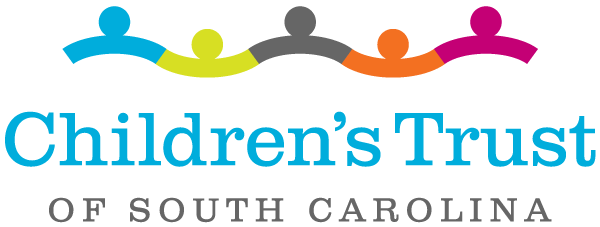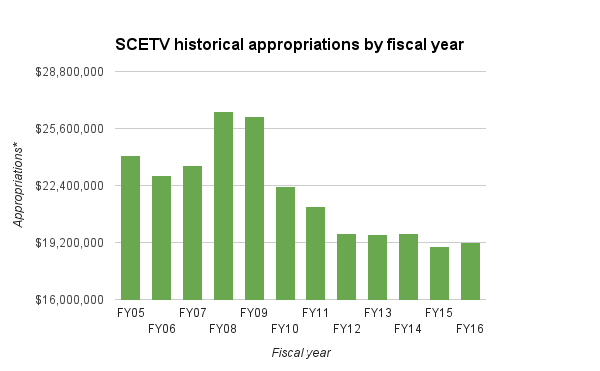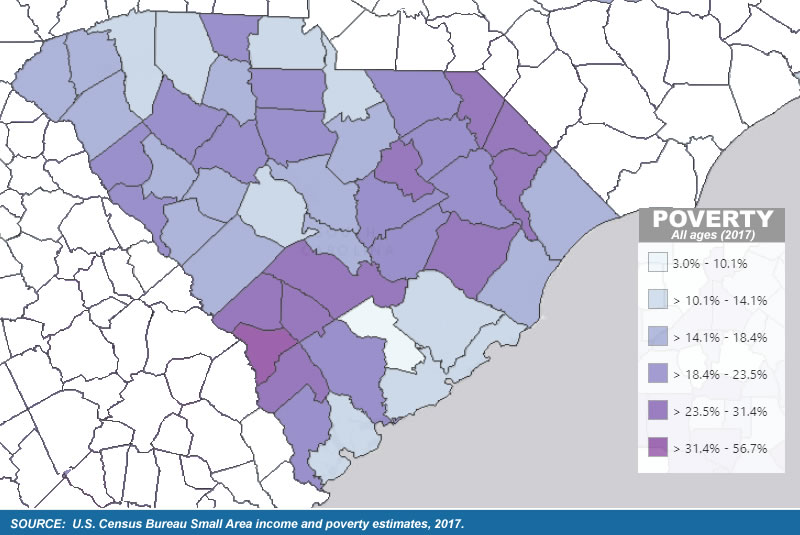INSIDE ISSUE 18.39 | SEPT. 27, 2019
 BIG STORY: 130,000 children living in high poverty in S.C.
BIG STORY: 130,000 children living in high poverty in S.C.
NEWS BRIEFS: Libraries step up in the battle for a healthier South Carolina
COMMENTARY, Brack: Drama on television is fine, but not by SCETV board
SPOTLIGHT: S.C. Education Association
FEEDBACK: Another Charleston first
MYSTERY PHOTO: Downtown scene
S.C. ENCYCLOPEDIA: Blue granite
NEWS
BIG STORY: 130,000 children living in high poverty in S.C.
By Lindsay Street, Statehouse correspondent | South Carolina has slightly fewer children living in concentrated poverty now compared to five years earlier, But 12 percent — about one in eight children — remain in high poverty areas, according to new data from the Annie E. Casey Foundation.
The U.S. Census Bureau’s data snapshot of children living in high poverty , was released this week by S.C. Children’s Trust, which along with state agencies, coordinates with South Carolina Child Well-Being Coalition.
“This [snapshot] gives us another opportunity to examine the critical intersections for children. Where they live is one of the most important,” Coalition Chair Dr. Christine Turley said in a statement
According to the report, 18,000 fewer children lived in concentrated poverty when comparing data from years 2008-2012 to 2013-2017. Concentrated poverty refers to a neighborhood that has a 30 percent or more of its population living in poverty — defined as an annual income of $31,380 for a family of four. High-poverty neighborhoods generally don’t have access to healthy food and quality schools, contributing factors that can lead to a lack of child well-being and to abuse and neglect.
 “We are encouraged that there has been a slight improvement in the number of children living in significantly under-resourced neighborhoods,” said Aditi Srivastav Bussells, research and community impact manager at S.C. Children’s Trust. “However, there are still too many South Carolina children and families who lack access to opportunities by virtue of where they live.”
“We are encouraged that there has been a slight improvement in the number of children living in significantly under-resourced neighborhoods,” said Aditi Srivastav Bussells, research and community impact manager at S.C. Children’s Trust. “However, there are still too many South Carolina children and families who lack access to opportunities by virtue of where they live.”
According to data, 73 percent (95,000) of children living in high-poverty neighborhoods are black or Hispanic, and 40,000 of the children are under the age of 5. Southern states, like South Carolina, have among the nation’s highest rates of children living in concentrated poverty.
The S.C. Children’s Trust recommended the following policy actions to mitigate poverty in the state:
- Higher taxes. Support low-income residents in paying higher property taxes that often come with new development/redevelopment or with a family’s relocation to a more affluent area. In 2020, S.C. lawmakers will look at redefining portions of the tax code — flattening the sales and income tax rates by getting rid of exemptions. In 2017, legislators passed and overrode a gubernatorial veto to offer an earned income tax credit in the state for low-income earners.
- Training. Expand workforce training that is targeted to high-poverty, low-opportunity communities. House Bill 3759 — the massive education overhaul bill — seeks to provide more career-readiness and workforce training. The bill remains in review by the Senate.
- Loans. Encourage small-business loan programs that serve entrepreneurs in low-income neighborhoods and communities of color — or people that traditional lenders tend to reject, such as individuals with poor credit or criminal records.
At the Statehouse, budget writers this year included funding to bring an additional 20,000 children onto a federally-funded health insurance program beginning in 2020. Another poverty-zone piece of legislation to watch will be a proposal by S.C. Rep. Marvin Pendarvis, D-North Charleston, that seeks to use state tax incentives coupled with federal incentives to push investment in high poverty areas of the state.
- Have a comment? Send to: feedback@statehousereport.com
NEWS BRIEFS
Libraries step up in the battle for a healthier South Carolina

By Lindsay Street, Statehouse correspondent | Combatting the state’s high obesity level and food insecurity could come from a surprising source: your local library.
That’s the hope of a new statewide initiative from the S.C. State Library, Read Eat Grow. It focuses on “food literacy,” a phrase that equates learning to read with learning about food from farm to table, including how its grown, nutritional information, how to cook and serve it, and what to do with leftovers.
“We know for a fact that hungry kids do not learn,” State Library youth services consultant Rebecca Antill of St. Matthews said. “If we as a public libraries are concerned about our educational outcomes … then we have to take a step back and address some of those basic needs. Give them the information and the knowledge to make healthy choices.”
In South Carolina, one in five children lives in poverty, according to the Annie E. Casey Foundation. And the live in food insecure homes, according to Feeding America. Another stat: The obesity rate is 34.3 percent of adults, according to national obesity reporting outlet the State of Obesity.
And the local library — known for its books and free wifi, but not necessarily eating-friendly policies — seemed a natural fit to Antill and others because it’s a meeting place for food-related service.
The S.C. Department of Health and Environmental Control, for example, holds classes statewide for food stamp beneficiaries. Often, the classes are held at local libraries. DHEC policy systems and environmental change coordinator Quin Knox called libraries “no brainer” locations for nutrition programs.
“Community libraries are like cornerstones and hubs for communities. A lot of our low income participants frequent the library a lot for various services,” she said.
DHEC also has partnered with the State Library on Read Eat Grow’s programs, like SC Plants the Seed, which focuses on giving communities better access to locally grown food and understanding nutrition.
“(Libraries) felt more connected to their patrons,” Knox said. “And, from patrons’ perspective, they were so happy to have a one-stop shop.”
Antill called Read Eat Grow an “umbrella” that will house many programs dealing with food, growing and nutrition.
The Read Eat Grow initiative had its official kickoff this week, but perhaps you’ve seen food-focused programs at your library, such as Plants the Seed or the mobile kitchen.
Of the state’s 43 libraries, roughly half already have or are continuing some part of the Read Eat Grow initiative, Antill said. The Read Eat Grow initiative has been piloting programs in communities for the past year, including with its mobile kitchen, called Charlie Cart.
In other S.C. news:
![]() More oversight needed. The state’s Medicaid agency has failed to have health care providers report and therefore verify qualifications for people approving child behavioral care in the state, according to a state legislative audit evaluating the S.C. Department of Health and Human Services’ child behavioral health released this week. The report looked at a number of objectives, including the effects of introducing managed care organizations to behavioral services for children on July 1, 2017. The report found, “Despite delegating responsibility for the care of children with behavioral health diagnoses to private, for-profit managed care companies, DHHS does not know the names and qualifications of every person who participates in the screening and authorization approval process … We have heard numerous accounts of children denied authorization for initial or continued treatment.”
More oversight needed. The state’s Medicaid agency has failed to have health care providers report and therefore verify qualifications for people approving child behavioral care in the state, according to a state legislative audit evaluating the S.C. Department of Health and Human Services’ child behavioral health released this week. The report looked at a number of objectives, including the effects of introducing managed care organizations to behavioral services for children on July 1, 2017. The report found, “Despite delegating responsibility for the care of children with behavioral health diagnoses to private, for-profit managed care companies, DHHS does not know the names and qualifications of every person who participates in the screening and authorization approval process … We have heard numerous accounts of children denied authorization for initial or continued treatment.”
Senate selects education funding committee. S.C. Senate Education Committee Chairman Greg Hembree, R-Horry, appointed this week a special committee to evaluate the state’s education funding formula. The committee is currently reviewing the House-passed education overhaul bill, which does not address the funding formulas. Hembree said the committee will review what revisions can be made to increase flexibility for district spending. The first meeting is slated for Oct. 23. Greenville Republican Sen. Ross Turner will chair. Members include: Senate Majority Leader Shane Massey, R-Edgefield; Senate Minority Leader Nikki Setzler, D-Lexington; Senators Tom Young, R-Aiken; Rex Rice, R-Pickens; Vincent Sheheen, D-Kershaw; and Gerald Malloy, D-Darlington.
Speaking of education funding analysis. The S.C. Revenue and Fiscal Affairs Office is expected to report on its education funding analysis early next month. The report was delayed from the Sept. 12 meeting. The report was requested by Gov. Henry McMaster, Senate President Harvey Peeler and House Speaker Jay Lucas in January of this year. The top lawmakers sought for the report to be provided to them “no later than May 9.”
Funds for 205 SROs released. S.C. Department of Education released the $11.8 million in state-appropriated funding for 205 school resource officers — putting “us within reach of meeting our goal for having an SRO in every school,” state Superintendent Molly Spearman said in a press release. All 81 public school districts and the state’s two charter school district will have one to four officers paid for with the state money. See the list of SROs being funded by school district here.
S.C. taxes listed as ‘penalizing’ for marriage. The Tax Foundation listed South Carolina as one of 15 states with a so-called “marriage penalty,” which is defined as when a state’s income brackets for married taxpayers filing jointly are less than double the bracket widths that apply to single filers. According to the nonprofit, under a marriage penalty, married business owners are subject to higher effective tax rates on their business income than they would be otherwise.
2020 candidate calendar
 Throughout the campaign season, we are working to keep South Carolina informed of candidate events in the state. Have an event you want us to know about? Email us at 2020news@statehousereport.com.
Throughout the campaign season, we are working to keep South Carolina informed of candidate events in the state. Have an event you want us to know about? Email us at 2020news@statehousereport.com.
Warren comes to Rock Hill. Democratic Massachusetts Sen. Elizabeth Warren will speak at a Rock Hill Town Hall 3:45 p.m. Sept. 28 at Clinton College. RSVP here.
Booker plans two events in Midlands. Democratic New Jersey Sen. Cory Booker will be at two Midlands events on Sept. 29: 1 p.m. Booker Block Party at Cory 2020 SC HQ in Columbia, and 3 p.m. kickoff event for U.S. Senate Democratic challenger hopeful Jaime Harrison at Memorial Plaza in Orangeburg.
Blue Jamboree. Thousands are expected to attend the all-day Oct. 5 Blue Jamboree held by the Charleston County Democratic Party at The Bend, 3775 Azalea Drive, in North Charleston. Sponsors of the event include these presidential candidates: Joe Biden, Pete Buttigieg, Tulsi Gabbard and Bernie Sanders, as well as Kamala Harris, Elizabeth Warren, Tom Steyer, Cory Booker, Andrew Yang, Michael Bennet and Julian Castro. Tickets are $20.
Bullock makes stop in Columbia. Democratic Montana Gov. Steve Bullock will meet with Carol and Don Fowler of Columbia 1 p.m. Oct. 6. To RSVP, contact Mike Mendoza at Mendoza@SteveBullock.com or 949-735-7515.
- Have a comment? Send to: feedback@statehousereport.com
BRACK: Drama on television is fine, but not by SCETV board

By Andy Brack, editor and publisher | There’s been more drama recently among S.C. Education Television leaders than on Downton Abbey.
 The chairman of SCETV and two others resigned this week after months of scheming to try to get more money from the nonprofit endowment that has pumped in millions of dollars to ensure South Carolinians get high-quality public programs.
The chairman of SCETV and two others resigned this week after months of scheming to try to get more money from the nonprofit endowment that has pumped in millions of dollars to ensure South Carolinians get high-quality public programs.
It’s downright pitiful what’s been going on and three cheers go to Gov. Henry McMaster for protecting public television, which we’ve described in the past as a blessing and a gem.
Public broadcasting got its start in South Carolina in the late 1950s as an economic teaching medium to help unskilled workers get more skills and, as a result, boost their family incomes. As it blossomed into a public network, the ETV Endowment of South Carolina started in November 1977 to provide much-needed money for quality public television and radio programming. In just the last three years, for example, the Endowment has given more than $13.2 million in unrestricted programming support to SCETV. Only $4.5 million of the total was raised through on-air fundraising, according to the Endowment.
 A few years ago, Gov. Nikki Haley tried to zero out state funding for the network. She wasn’t completely successful because state legislators changed how the network got state funds. Instead of large direct appropriations, it moved to an indirect appropriation model in which broadcast services were reimbursed through the new Department of Administration. In 2005, for example, the agency received $12.7 million directly from state lawmakers and had a total budget of $24.1 million. By comparison, the network’s state budget in 2016 was just $277,532, although it generated millions more through services and pass-throughs for a total public budget of $19.2 million.
A few years ago, Gov. Nikki Haley tried to zero out state funding for the network. She wasn’t completely successful because state legislators changed how the network got state funds. Instead of large direct appropriations, it moved to an indirect appropriation model in which broadcast services were reimbursed through the new Department of Administration. In 2005, for example, the agency received $12.7 million directly from state lawmakers and had a total budget of $24.1 million. By comparison, the network’s state budget in 2016 was just $277,532, although it generated millions more through services and pass-throughs for a total public budget of $19.2 million.
Fast forward to mid-2018, when Haley-appointed sharks still on the SCETV Commission started churning the funding waters with relatively new SCETV President and CEO Anthony Padgett. By February of this year, board minutes reflect they hatched a plan to try to siphon off more Endowment money so the partnership would be “modernized and codified.”
By March, the funding putsch was on full display as Haley holdovers on the commission pushed through a resolution [see March minutes here] that said SCETV “must maintain complete, accurate and secure records of all uses of donor information and must maintain active control of donor lists …”
 In other words, they wanted control. They wanted to use Endowment donor records and start their own fund-raising efforts, which would have crippled the successful Endowment and, to say the least, confused donors. The sharks even threatened lawsuits and institutional retribution in what one attorney described as “an aggressive effort to gain substantial control over the Foundation’s funds in order to use them in support of ETV in a much broader fashion than is contemplated by the ETV Foundation’s charter.”
In other words, they wanted control. They wanted to use Endowment donor records and start their own fund-raising efforts, which would have crippled the successful Endowment and, to say the least, confused donors. The sharks even threatened lawsuits and institutional retribution in what one attorney described as “an aggressive effort to gain substantial control over the Foundation’s funds in order to use them in support of ETV in a much broader fashion than is contemplated by the ETV Foundation’s charter.”
Then came a point where everything might have just gone too far. According to a July letter apparently sent in September to the Endowment’s director, then-SCETV Board Chair Brent Nelsen of Greenville had the audacity to ask the Endowment to provide a $21,527 bump to Padgett’s pay “for exemplary performance over the past year and to help ensure retention.” Currently, he earns $173,800 from the state. Really? Reward someone for plotting against you?
By the commission’s Sept. 18 meeting, McMaster had filled a couple of vacancies on the SCETV Commission with folks who understood the historic relationship with the Endowment. Power on the agency’s board shifted away from Padgett and Haley’s appointees. The new members stopped the whole nonsense in its tracks by helping to rescind a detrimental and orchestrated March resolution designed to hurt the Endowment.
Padgett, obviously now worried about his job, has started singing another tune. In his September president’s report, he outlined how the very efforts in which he had been engaged were “divisive and distracting to both organizations. Given our history and long-standing relationship with the ETV Endowment, and their support, we have decided that it is best to focus on what helps us build our organizations, rather than what divides us.”
In recent days, Nelsen and two other Haley appointees resigned, employing full-fledged Trumpian language in an op-ed that talked about draining swamps and other nonsense.
It’s good they’re gone. Now, maybe it’s time for Padgett to start looking for another job. SCETV needs leadership that embraces the Endowment, not that conspires against it.
Andy Brack’s latest book, “We Can Do Better, South Carolina,” is now available in paperback and for Kindle via Amazon.
- Have a comment? Send to: feedback@statehousereport.com.
The S.C. Education Association
 The public spiritedness of our underwriters allows us to bring Statehouse Report to you at no cost. This week’s spotlighted underwriter is The South Carolina Education Association(The SCEA), the professional association for educators in South Carolina. Educators from pre-K to 12th grade comprise The SCEA. The SCEA is the leading advocate for educational change in South Carolina. Educators in South Carolina look to The SCEA for assistance in every aspect of their professional life. From career planning as a student to retirement assessment as a career teacher, The SCEA offers assistance, guidance, and inspiration for educators.
The public spiritedness of our underwriters allows us to bring Statehouse Report to you at no cost. This week’s spotlighted underwriter is The South Carolina Education Association(The SCEA), the professional association for educators in South Carolina. Educators from pre-K to 12th grade comprise The SCEA. The SCEA is the leading advocate for educational change in South Carolina. Educators in South Carolina look to The SCEA for assistance in every aspect of their professional life. From career planning as a student to retirement assessment as a career teacher, The SCEA offers assistance, guidance, and inspiration for educators.
- Learn more: TheSCEA.org
Another Charleston first
To the editor:
![]() Another Charleston First is the First Memorial Day in America, held around the old racecourse at what is now Hampton Park and organized by the African-American churches and the Freedmen’s Bureau.
Another Charleston First is the First Memorial Day in America, held around the old racecourse at what is now Hampton Park and organized by the African-American churches and the Freedmen’s Bureau.
Three thousand school children and 7,000 free persons of color and recently-emancipated slave marched on May 1, 1865. David Blight and other historians have confirmed this as factual and a plaque serves to commemorate the event near the parking lot in the park.
More information is available from the Charleston Horticultural Society in their publication ”Layers of the Landscape at Hampton Park.”
— Judy Hines, Charleston, S.C.
Send us your thoughts … or rants
We love hearing from our readers and encourage you to share your opinions. But you’ve got to provide us with contact information so we can verify your letters. Letters to the editor are published weekly. We reserve the right to edit for length and clarity. Comments are limited to 250 words or less. Please include your name and contact information.
- Send your letters or comments to: feedback@statehousereport.com
Downtown scene

Here’s a South Carolina downtown scene, but where is it? Send your guess about the location of this photo to feedback@statehousereport.com. And don’t forget to include your name and the town in which you live.
Our previous Mystery Photo
 Our Sept. 20 mystery, “Relic of the past,” showed the remains of the historically-important Progressive Club building on Johns Island. It’s significant place in history is explained below.
Our Sept. 20 mystery, “Relic of the past,” showed the remains of the historically-important Progressive Club building on Johns Island. It’s significant place in history is explained below.
Congratulations to these photo detectives: George Graf of Palmyra, Va.; Frank Bouknight of Summerville; Herman Blake of Johns Island; and Jay Altman of Columbia.
Blake, a retired professor and former head of the Gullah-Geechee Cultural Heritage Corridor, outlined the importance of the site:
“These are the remains of the Progressive Club on Johns Island. It was destroyed by Hurricane Hugo and has never been restored. Yet it is one of the most significant historic places in the nation–beyond Johns Island, Charleston County and South Carolina.
“The Progressive Club was founded well before the Civil Rights Movement by Esau Jenkins and local citizens who were truly ‘grass roots.’ Out of their humble efforts, Esau Jenkins began the promotion of basic education, voting and civic participation. He had the loyal support of humble men and women like Alice Wine, John Smalls and many others on Wadmalaw Island, James Island and Edisto Island. With the leadership of Septima Clark and Bernice Robinson and the support of Myles Horton and the Highlander Folk School (Monteagle, Tenn.), Esau and ‘the people’ inaugurated citizenship education classes in the Progressive Club. They ‘hid’ these classes behind the store in front so that white oppressors could not prevent them.
“Martin Luther King and his colleagues (Andrew Young) adopted their strategies and the Progressive Club and its grassroots members became the prototype for the voter rights programs of the Southern Christian Leadership Conference. Many thousand citizens throughout the South became registered voters. they voted and changed America. Indeed, some of the leading African American citizens of Charleston told me (in 1967) how Esau Jenkins inspired, motivated and guided them.
“The Progressive Club should not be permitted to languish and deteriorate. It should be restored, celebrated and emulated.”
Altman shared the information on a historic marker by the Preservation Society of Charleston that is outside of the ruins:
“The Progressive Club, built in 1962-1963, was a store and community center for Johns Island and other Sea Islands until it was badly damaged by Hurricane Hugo in 1989. The club had been founded in 1948 by civil rights activist Esau Jenkins (1910-1972), who worked to improve educational, political, economic and other opportunities for blacks on the island and in the lowcountry.
“Jenkins, Septima Clark (1898-1987) and Bernice Robinson (1914-1994) founded the first Citizenship School in 1957 to encourage literacy and voter registration. Its success led to many similar schools across the South, called “the base on which the whole civil rights movement was built.” The Progressive Club was listed in the National Register of Historic Places in 2007.”
Altman added, “As an aside, the 1966 Volkswagen van owned by Esau and Janie B. Jenkins is (was) on display on the National Mall September 20-26th as a part of the Historical Vehicles Association’s Cars at the Capitol exhibition.”
- Send us a mystery: If you have a photo that you believe will stump readers, send it along (but make sure to tell us what it is because it may stump us too!) Send to: feedback@statehousereport.com and mark it as a photo submission. Thanks.
S.C. ENCYCLOPEDIA
HISTORY: Blue granite

S.C. Encyclopedia | Blue granite was designated the state stone by a law approved by Gov. Robert McNair on June 24, 1969. Legislators declared that “the blue granite stone of this State has been widely used to beautify all areas of South Carolina.” The state is famed for Winnsboro blue granite, which was quarried for many years in Fairfield County. The stone is of light blue color and contains particles of mica, feldspar and quartz. It is much prized in construction and decoration.
Granite is a coarse-grained igneous stone produced by slow cooling and solidification of molten rock. Winnsboro blue has been used in the construction of churches, houses, gravestones, and fence posts since the early nineteenth century. The Winnsboro Granite Company quarried and shipped the “beautiful blue” for many years, and the stone acquired national renown as “the silk of the trade.” It has been used in such structures as New York City’s Flat-Iron Building, the old Charleston Post Office, and the great dry dock of the Charleston Naval Shipyard. It was used for the Jean Ribaut Monument at the U.S. Marine Corps Depot at Parris Island and for Charleston’s John C. Calhoun Monument. The Fairfield granites won a medal and diploma at the World’s Columbian Exposition in 1893.
After Winnsboro blue was no longer quarried in South Carolina, stocks still remained in the state, and the stone was still found in Elberton, Georgia. In 2002 the Willis Dimension Stone Company of Elberton donated Winnsboro blue to Shaw Air Force Base to be used for a monument to firefighters who served at New York City’s “Ground Zero” on September 11, 2001.
— Excerpted from an entry by David C.R. Heisser. This entry may not have been updated since 2006. To read more about this or 2,000 other entries about South Carolina, check out The South Carolina Encyclopedia, published in 2006 by USC Press. (Information used by permission.)
ABOUT STATEHOUSE REPORT
Statehouse Report, founded in 2001 as a weekly legislative forecast that informs readers about what is going to happen in South Carolina politics and policy, is provided to you at no charge every Friday.
Meet our team
- Editor and publisher: Andy Brack, 843.670.3996
- Statehouse correspondent: Lindsay Street
Buy the book
Now you can get a copy of editor and publisher Andy Brack’s We Can Do Better, South Carolina! ($14.99) as a paperback or as a Kindle book ($7.99). . The book of essays offers incisive commentaries by editor and publisher Andy Brack on the American South, the common good, vexing problems for the Palmetto State and interesting South Carolina leaders.
More
- Mailing address: Send inquiries by mail to: P.O. Box 22261, Charleston, SC 29407
- Subscriptions are free: Click to subscribe.
- We hope you’ll keep receiving the great news and information from Statehouse Report, but if you need to unsubscribe, go to the bottom of the weekly email issue and follow the instructions.
- © 2019, Statehouse Report. All rights reserved.



